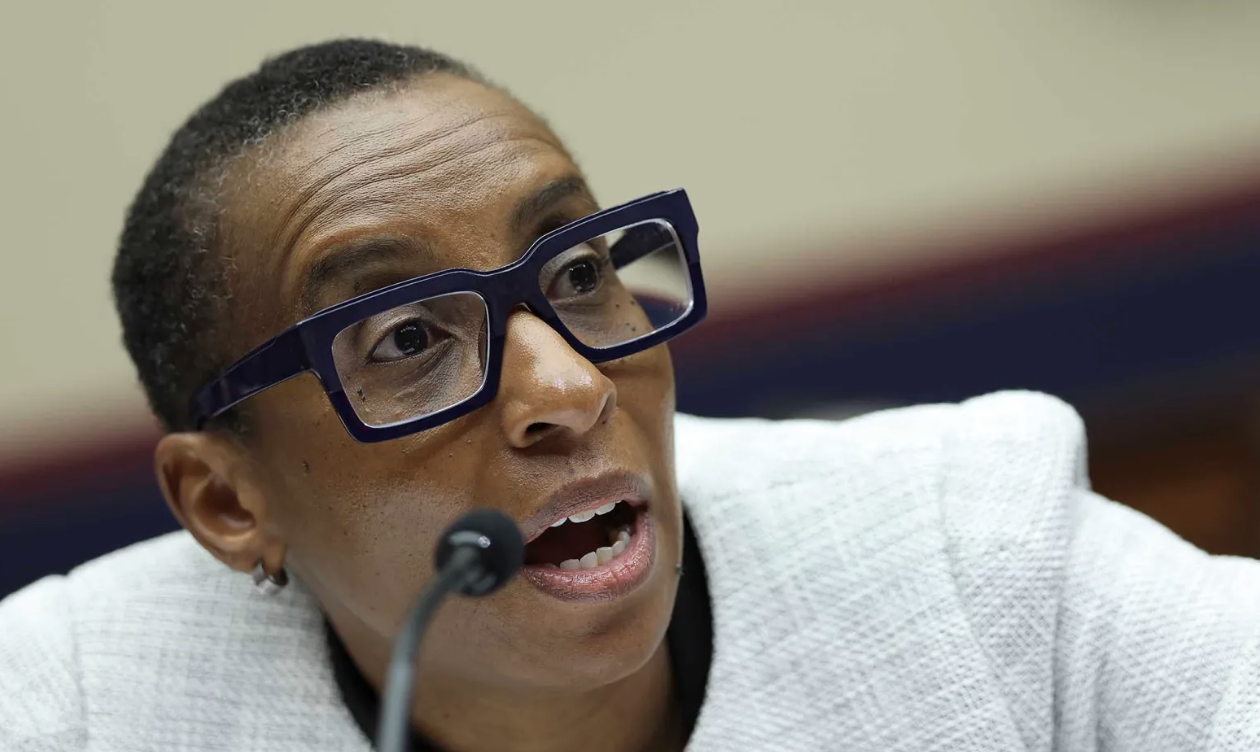By: Jason L. Riley – wsj.com – December 19, 2023
Anyone suggesting that Ms. Gay deserves the same treatment as Ms. Magill stands accused of racism by liberal elites who maintain that all black people not named Clarence Thomas are off-limits to criticism. The head of the NAACP, Derrick Johnson, insisted that disapproval of Ms. Gay’s leadership is “nothing more than political theatrics advancing a white supremacist agenda.” More than 80 black faculty members at Harvard signed a letter stating that “any suggestion that her selection as president was the result of a process that elevated an unqualified person based on considerations of race and gender are specious and politically motivated.”
Ms. Gay’s defenders pretend that her qualifications for the job are indisputable and that her being hired had nothing to do with race. That’s baloney and they know it. Bill Ackman, the hedge-fund manager and Harvard megadonor who has led calls for her ouster, said he was told that the search committee that chose Ms. Gay “would not consider a candidate who did not meet the DEI office’s criteria,” using the acronym for diversity, equity and inclusion. There is little reason to doubt him.
That universities take race into account to fill job openings might be the worst-kept secret in academia. As CNN’s Fareed Zakaria put it recently, a “white man studying the American presidency does not have a prayer of getting tenure at a major history department in America today.” Hiring for new faculty positions, particularly in humanities departments, “now appears to center on the race and gender of the applicant, as well as the subject matter, which needs to be about marginalized groups.”
Earlier this year, the Supreme Court scolded Harvard for using racial preferences to admit students. Why wouldn’t it have been doing the same thing to hire faculty, staff and administrators? On campus, that appears to be the assumption. After Ms. Gay landed the top job last year, the school newspaper hailed the appointment of “the first Black president and president of color in the history of the University” and editorialized that it “feels as though it heralds the start of a more progressive era at Harvard, one that understands representation, diversity, and inclusion as essential to creating the kind of vibrant intellectual community that can in turn create a better world.”
To the extent that Ms. Gay’s academic bona fides were highlighted, it was to show that they advanced the DEI agenda. As dean of Harvard’s Faculty of Arts and Sciences, the paper gushed, “she created an expansive initiative on inequality in America, oversaw hires intended to bolster Harvard’s offerings in the areas of climate change and ethnic studies, and sanctioned several well-known professors accused of sexual harassment.”
Ms. Gay’s predecessor, Lawrence Bacow, spent 10 years as president of Tufts University and 24 years on the faculty at the Massachusetts Institute of Technology before taking over at Harvard. His predecessor, Drew Gilpin Faust, was already a noted historian who had taught for two decades at the University of Pennsylvania and authored several well-received books in her specialty, the Civil War South.
The truth is that Ms. Gay’s defenders don’t want to acknowledge that her administrative experience and scholarly credentials don’t begin to match those of other people in similar posts. The same can’t be said of Ms. Magill, who was dean of Stanford Law School, provost of the University of Virginia and a clerk for Justice Ruth Bader Ginsburg before being tapped to run Penn.
Ms. Gay wasn’t hired for her academic chops, and her problematic publishing record has become an additional embarrassment. Harvard has been forced to acknowledge multiple instances of “inadequate citation,” which is more commonly known as plagiarism. By some counts, close to half of Ms. Gay’s academic output contains instances of copying word-for-word from another source without using quotation marks.
Harvard’s dilemma illustrates a broader practical problem with racial-preference policies. Once you lower standards for hiring administrators or admitting students, you are forced to lower standards for evaluating their conduct and performance. For purposes of window dressing, people who have no business running elite institutions such as Harvard have been put in charge of people who have no business teaching or matriculating there. What could go wrong?
To see this article in its entirety and to subscribe to others like it, please choos to read more.
 Listen Online
Listen Online Watch Online
Watch Online Find a Station in Your Area
Find a Station in Your Area









 Listen Now
Listen Now Watch Online
Watch Online
